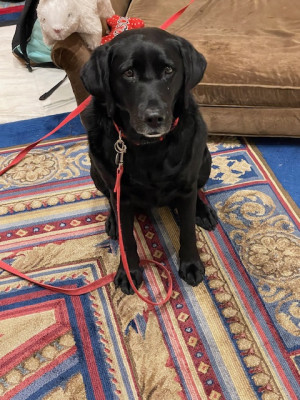RamaOnHealthcare July 23, 2024

Mohan Nair, CEO Emerge® USA, The Transformation Innovation Company
Edmund Hillary Investor Fellow (New Zealand)
Venture Advisor, Pacific Channel
It requires a lot of energy to attend Healthcare Conferences. Most of it comes from expectation filled with the desire to change healthcare. But we often leave with the truth. Battling the complexity of healthcare is very challenging. Nonetheless, most of us are enthusiastic about AI, Value-based care models, digital solutions, transformative financial models, transparency and more. We leave with the hope something will catalyze us to move forward with intention and continue searching for the missing ingredients to make all of healthcare superior for the consumer.
I was a guest speaker recently for a unique health summit. It was a curated small group of Payers and Providers for a two-day meet. I addressed digital advancements and AI. But the haunting thought of healthcare engagement lingered below any benchmark of consumer engagement.
After an early six-hour flight and a long day, I had little remaining energy that evening. I looked forward to checking into the hotel – until I was revitalized by something quite special and unexpected.
As I approached the hotel, I encountered a beautiful Labrador Retriever dog at the front door. She happily welcomed me as if I was a long-time great friend of hers. I instantly forgot my fatigue and initial intention of checking in and relaxing. Instead, I watched this dog as she allowed children to grab her ears, play with her, and share mutual affection. She appeared genuinely happy to meet each guest and passerby.
The next morning, I had hope as this health conference seemed to have a different script. I felt we needed to find common footing in the truth we all faced in healthcare. Many start with optimistic enthusiasm and the promise of new technology. We witness presentations of highly scripted speakers held to share only their marketing communication teams. Yet, we also live the irony of the very leaders who tell us to fight our way out of the tyranny of a system that holds itself together.
A few insights help us deal with the questions we ask. We meet with colleagues, but ultimately, and honestly, we lament our customers/patients are un-engaged. We pack this problem with more and more solution designs from rewards, punishments, and technology.
…we lament our customers/patients are un-engaged.
I mention “un-engaged” because to say our customers are largely disengaged is too much of a compliment. They are not even wanting to be around us because we represent illness not health. How do we break the long-standing inertia?
Sometimes we blame other partners in our value chain. We know the system we call healthcare is a chain of negotiated arrangements linked together loosely and break about every 18 months. We know the system we rely on leads our customers into U-turns that we cannot anticipate. We know there is a profound transformative experience going forward. The question is – how do we prepare ourselves for the disruption of our established structure and process ahead?
The United States healthcare system realizes 20% of the services provided are generating 80% of the $4 trillion cost. Of that 20%, we engage only 4% to solutions we offer. Further, it is not the same 20% we are trying to engage. Customers migrate between health and sickness, yet we treat the system as static. We must engage all to be effective.
The United States healthcare system realizes 20% of the services provided are generating 80% of the $4 trillion cost.
Meanwhile – back at the Fairmont Boston, where I checked in previously, Cori Copley, the Labrador, continued to happily greets all guests who enter the hotel. She welcomes other dogs, kids, and grownups – many of whom graciously sit on the floor and receive a full dose of attention and joy. Cori is trained to remain calm, wag her tail and make all feel accepted and properly treated.
Take a look here: https://www.fairmont.com/copley-plaza-boston/activities/cori-copley/
As it pertained to customer (patient) satisfaction, Cori’s outcome measures were better than all healthcare.
As it pertained to customer (patient) satisfaction, Cori’s outcome measures were better than all healthcare.
I spent time with Cori, and her owner, the Bellman. Cori has met more Presidents, served more “patients” and received treats for good behavior, walks with her Bellman, and visits friends daily.

Cori Copley
What is the lesson for us in healthcare? I realize you may declare this a simply a fun analogy and not applicable within healthcare. Afterall, the healthcare system is a huge complex system with many players – while this dog giving attention and getting treats in the front lobby is way too simple a comparative.
Please allow me this defense for my analogy. Cori is not the first Canine Ambassador. Before her, Catie Copley, greeted others. Catie, a trained guide dog, also assisted those in the Boston Marathon bombing. She was the one who comforted many who lay on the floors of the hotel.
The previous generations of Cori have been consistently trained by Jim Carey, the director of concierge services, Joe Fallon, concierge, and Cori’s current custodian. This system is designed to ensure the continuous and ongoing care for customers – one with a common framework of care, developed to transform customers before they reach or interact with the front desk. This is also scalable, maintainable and benefits the staff as well as the customers.
…a common framework of care, developed to transform customers before they reach or interact with the front desk.
It hurts to admit this, but Healthcare is not the system it was intended to be. It appears to have instead morphed into a process to ensure maximal capital preservation while treating the “customer” with best available, and not the best possible engagement.
It hurts to admit this, but Healthcare is not the system it was intended to be.
The people in these arrangements try to deliver unique personalized care and support despite the arrangements they must abide with such as regulatory, legal, and ethical requirements. Others can be greed inflicted and fail to provide the proper attention to person at the center of concern.
So how do we provide the “Cori” in our healthcare “system?” First let’s first get back to principles:
- Find ways to actively engage people. Very few will initiate change on their own.
- Explain, engage, and demonstrate your solutions simply, slowly, and with interactivity. Customers do not engage with what they do not understand or like.
- AI is not a panacea for all things! AI must focus on bringing intimacy not convenience.
- Transformation of the “customer” experience must often start before the very onset of interaction and contact. Before the front desk, Cori appears.
- Know the difference between quantitative (numbers) and qualitative (emotional) metrics and actions. Each are important!
- Know we are a human business using technology to be more human not less.
Know we are a human business using technology to be more human not less.
Do not wait for others to envision and create the future we all wish to experience.
Do not wait for others to envision and create the future we all wish to experience.
Please consider:
- To bring about transformation, start with the customer of the system.
- Blame no one except yourself.
- Change the focus from system to person.
- Believe one idea led by one person can change our world.
- It is not about you but those you transform.
- Use AI to rise of all boats and the lens of the consumer within AI to power transformation.
Remember – It requires you, as an innovator, to get things implemented – not the innovation!
Let’s pause (and paws) to remind ourselves the simple solutions often provide and best and longest lasting positive outcomes.
…the simple solutions often provide and best and longest lasting positive outcomes.
By her mere presence, Cori brings a brand of caring, comfort, and compassion into focus.
Cori places her primary attention on you. The system led by all staff, ensures Cori’s value proposition is delivered. The hotel staff understands they are not in the business of housing people. They are in the human healing business that just happens to house them. They know transforming each individual at arrival is business genius versus dealing with your existing problems when you arrive. I know I subordinated my concerns when I met Cori.
…transforming each individual at arrival is business genius….
PS. Cori has an Instagram following and her predecessor has a book written about her in the tradition of service to us humans.
More about Mohan Nair
Mohan is a corporate innovation culture enthusiast but pragmatic enough to know that not all things you dream can be achieved.
Through numerous business transformation experiences, Mohan has designed and implemented corporate innovation machinery, and culture to launch new ideas from either, a corporate chassis or on its own, utilizing cause centered transformation. A sought after speaker, moderator, Mohan speaks of personal and business transformation in the AI world regularly to executive audiences.
A TedX speaker, he highlights that business transformation needs personal transformation.
Born and raised in Singapore, with firsthand experience of how nations transform, Mohan’s experiences in the USA, and other nations, have shaped how he strives to create lasting business transformation.
As Edmund, Hillary fellow, Mohan is assisting the New Zealand entrepreneurial ecosystem in transforming. He was called to volunteer by the US government and healthcare transformation with the first formation of the Office of the National Coordinator. His client list is significant. He serves on several boards and is venture advisor to Pacific Channel, a New Zealand deep tech fund.
As a former TV, talk show host, musician, and the first healthcare executive to audition and lose at America’s got talent, Mohan hopes to inspire and teach all things transformational.
Catch his journey at:
linkedin.com/in/mohanemerge
TEDx talk





